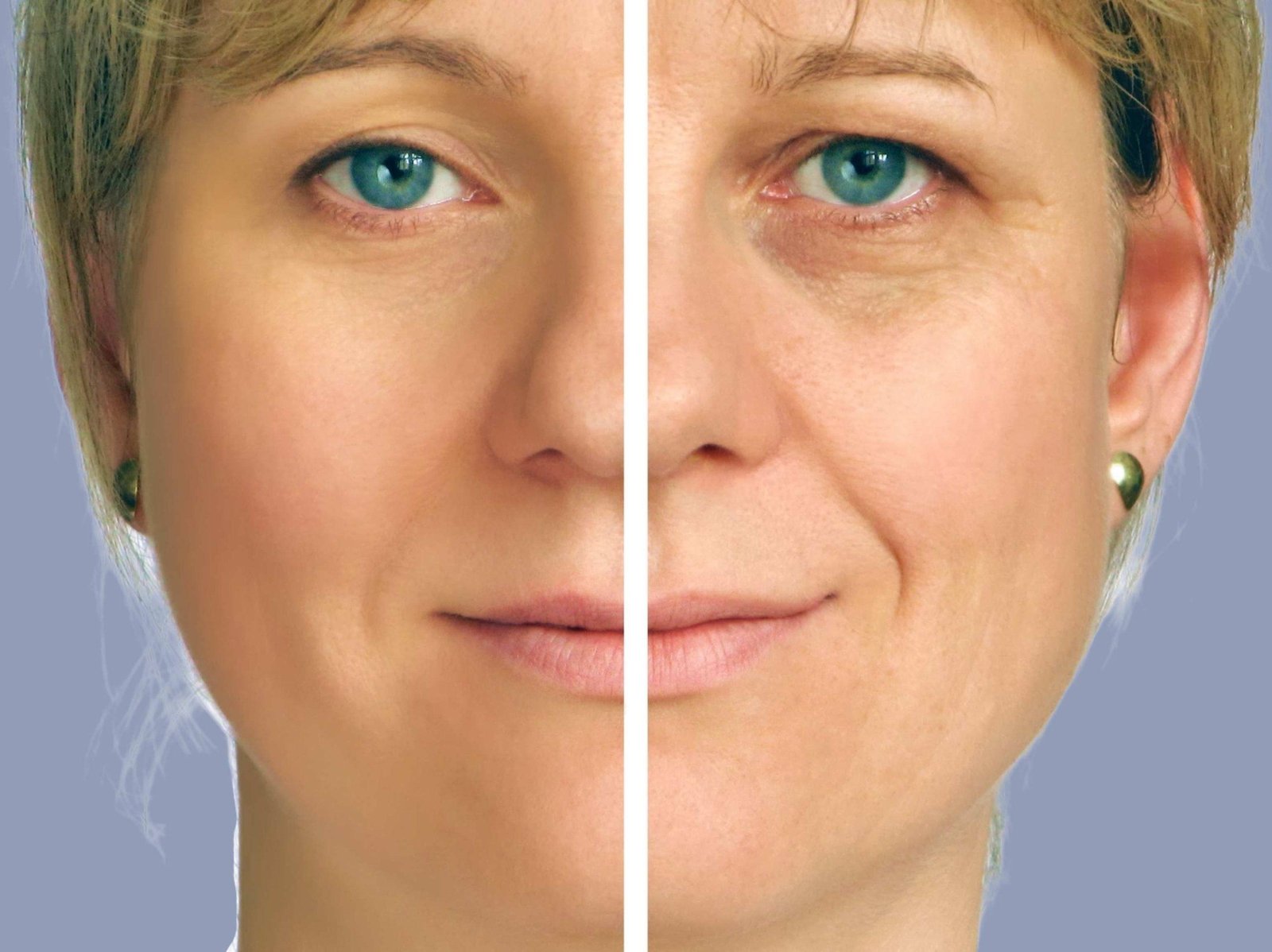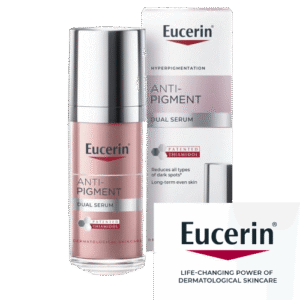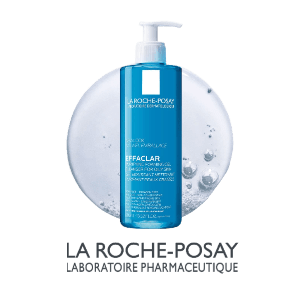All you need to know about Tretinoin

Free Samples
When you spend over £50
Free Delivery
When you spend over £25
Download App
For easy ordering
Special Offers
Shop our latest offers
SKINCLUSIVE
Our exclusive club
TRETINOIN
What is tretinoin?
Tretinoin (Retinoic acid) is a prescription strength form of Vitamin A that is used in skincare for its anti-ageing effects, benefits in pigmentation issues and the treatment of acne. There are less potent forms of Vitamin A that can be found in non-prescription skincare including retinaldehyde (retinal), retinol and retinyl esters.
How does it work?
Tretinoin works by increasing the turnover time of fibroblasts (skin cells) leading to increased shedding of skin and the formation of new, healthy skin cells. Increasing skin cell replenishment leads to improvements in fine lines, wrinkles, ageing skin and faster shedding of sebum and bacteria responsible for acne outbreaks.
How should tretinoin be used?
Tretinoin can lead to several problems when first used, including redness, irritation and flaking of the skin. It is recommended to start on a lower dose and apply it 2-3 times a week initially and gradually increase to once a day as the skin becomes tolerant. Tretinoin should be applied on the evening and the skin should not be washed for an hour. Only small amounts need to be used, a pea sized amount should be sufficient for the whole face.
If you suffer with dry or sensitive skin, moisturiser can be applied before and after tretinoin to help prevent side effects.
Avoid using other aggressive products or exfoliants on the skin when you first start using tretinoin.
Is tretinoin suitable for me?
Tretinoin is suitable for many skin types and problems, however it may not be suitable or harmful if you have any of the following:
- Allergy to tretinoin or excipients
- Pregnancy/Breast feeding
- Children under 16 years of age
- Certain skin conditions, such as eczema
- Sunburn or damaged skin
- Photosensitivity
How long does it take to see benefits?
If used daily, results can be obtained as soon as 6 weeks, as this about the normal skin cell turnover time. However, if only using tretinoin 2-3 times a week, this may be up to 12 weeks.
What are the side effects of tretinoin?
Most people will see a skin reaction when starting on tretinoin which includes redness, irritation, flaking skin, dryness and peeling (a retinol reaction). These effects can be minimised by using a lower dose, introducing it gradually and using small amounts.
The skin will also be more sensitive to the exposure of sunlight and it is essential to use a sun protection whilst using tretinoin.
How long should I use tretinoin for?
Tretinoin should be used until results have been obtained, this is often between 3 to 6 months. We do not recommend using tretinoin long term, although there is evidence to suggest that it is safe to use for long periods.
- Home
- Shop
- Brands
-
-
- Advanced Nutrition ProgrammeBeautiful Skin Starts From Within When it comes to healthy skin, what you put inside the body can be as important as what you apply topically. The Advanced Nutrition Programme is a cutting edge, salon-only range of supplements that supports skincare regimes. Products can be combined to effectively target skin and overall wellbeing. Advanced Nutrition Programme™ supplement contains only the finest ingredients that are easily absorbed by the body. There are no artificial colours, flavourings or sweeteners and where possible only the most natural components available are used. Our fish oil is scrupulously screened for pollutants and this approach is extended to the whole product range to ensure the highest quality and purity. In recent years the nutritional profile of food has changed and it is not always possible to obtain optimum levels of nutrition from our daily diet. High-quality supplements can have a role to play in helping to ensure the correct daily intake and supporting a healthy, radiant complexion. Advanced Nutrition Programme™ products are not intended to diagnose, treat, cure or prevent any disease.
- Biretix
- CeraVe
- Clinisept+Clinisept+ offers a completely new approach to skin cleansing that is rapidly being adopted by the worlds leading cosmetic professionals. Clinisept+ is the result of many years research and development to produce a ‘skin safe’ cleanser. It contains a proprietary hypochlorous solution which enables it to provide effective cleansing at a fraction of the strength of traditional cleansing chemistries. The hypochlorous has a unique oxidising method of action which cleanses and provides antimicrobial protection, but is also gentle on the skin: it doesn’t harm, irritate or sensitise the dermal layer. Clinisept+ has undergone extensive independent dermatological testing, proving its cleansing efficacy, skin neutral pH, hypoallergenic and non-cytotoxicity.
- Dermaroller
- EmepelleAesthetiCare® specialises in advanced evidence based dermatological medical-devices, pharmaceuticals and medigrade skincare. The portfolio has been developed and compiled to provide the most advanced evidence based technologies and products for the preparation, protection, repair and regeneration of ageing, sun-damaged (photodamaged) and impaired skin. Purchase any two of the Neoretin products and receive £10.00 OFF. Enter the code ’10OFFNEORETIN’ at the checkout Introducing Emepelle; a revolutionary skincare range to treat the root cause of menopausal skin ageing, for skin that’s hydrated, brighter and firmer. With millions of women in the UK going through menopause at any one time, it’s likely that a significant number of your client base is menopausal. By recommending Emepelle you can confidently address the accelerated skin ageing effects they are experiencing at this stage in their life.
- EndocarePurchase any two products from the CELLPRO range and receive 10% OFF – Enter coupon code ‘Cellpro10%’ at the checkout The innovative technology Endocare Biorepair SCA not only stimulates the formation of new skin cells to promote skin repair but also prevents and reduces the presence of wrinkles. Its assets are specially designed to treat photoageing and protect the skin against free radicals, ultraviolet radiation and weather conditions. Endocare Biorepair SCA is a new technology capable of reactivating cellular regeneration within the skin. It is obtained from the purified snail secretion Cryptomphalus aspersa and is a potent natural source of anti-oxidants and restorative properties. The regenerative and anti-oxidant power of SCA prevents, protects and effectively repairs skin damage, while providing the skin with powerful moisturising and firming action. Thus SCA significantly improves the signs of photoageing, reducing both the number and depth of wrinkles, restoring firmness and smoothness to the skin and restoring hydration and flexibility. Endocare Concentrate products are recommended by skin specialists to boost the activity of key skin cells and activities, due to their high concentration of the growth factor complex; SCA BioRepair. It’s important that you follow the recommended usage guidance to maximise the results that…
-
- EnvironScientific skincare that really makes a difference Environ Skin Care is a premiere quality brand offering outstanding results for people who are serious about skincare. Formulated by Dr Des Fernandes, a world-renowned plastic surgeon, the range contains a unique combination of active ingredients to protect the skin from environmental aggressors and combat the signs of ageing. How to get the best from the Environ range
- Eucerin
- ExuvianceExuviance is a dermatologist delevoped skincare that correct the visible signs of aging, while providing the experience of a salon treatment at home. The powerful ingredients have been clinically proven to: Promote a healthy skin barrier • Improve skin texture and tone • Add firmness and suppleness to skin • Refine pore size • Reduce the appearance of fine lines and wrinkles • Help reduce age spots and hyperpigmentation • Moisturise dry skin • Enhance skin’s ability to retain moisture • Unblock and cleanse pores • Help manage oily and acne prone skin The Exuviance line contains the best clinically proven, state of the art technologies available today, all widely accepted by dermatologists the world over and supported by independent peer-reviewed scientific articles in every major journal of medical and cosmetic dermatology.
- HeliocareEssential Everyday Protection For Your Skin. Protect your skin from UV and ageing damage with the clinically proven Heliocare: High or very high UVA and UVB protection with great skin-loving gel preparations • Clinically and scientifically proven skin-specific anti-oxidant activity and dermal protection • Clinically proven anti-ageing protection from within the Heliocare oral capsule supplements • Contains Fernblock photoimmunoprotection technology Purchase any two products from the Heliocare 360 range and receive 15% OFF – Use the code ‘Helio15’ at the checkout Purchase two or more products from the Heliocare range (Excluding the Heliocare 360 Range) and receive 10% OFF with the code ‘Helio10’ The most popular and best selling sun protection product at our clinic! NEW Packaging coming soon to the Heliocare ranges
- Heliocare 360Purchase any two products from the Heliocare 360 range and receive 15% OFF – Use the code ‘Helio15’ at the checkout The next level of protection and prevention against the full spectrum of daily photo-ageing challenges. Heliocare 360 offers protection not only against UVA and UVB but also visible light and infrared by mineral, non-mineral and biological filters and Fernblock FC technology. Also incorporating anti-oxidant combinations and DNA repair enzymes. Heliocare 360 includes fractional biomimetic melanin HEV, synthesised from plant-derived tyrosine, absorbing visible light but without absorption into the skin. What does Heliocare 360˚do? Nothing protects your skin like Heliocare 360˚. Its revolutionary formulation not only shields the skin’s surface from damage, but also defends the skin from within with the unique and powerful Fernblock FC. Fernblock FC is what makes Heliocare 360˚ so unique. It’s a supercharged, fern-derived anti-oxidant that fights and neutralises harmful free radicals in your skin, defending your key skin cells like collagen and elastin. It’s the result of years of research and is exclusive to Heliocare 360˚ products. This unrivalled anti-oxidant activity is boosted with Vitamins C and E, while the addition of DNA repair enzymes minimise and repair DNA damage within skin cells –…
- iS ClinicalThe UK’s most luxury clinical brand Premium performance & positioning with an A-list following 95-98% botanically derived • Pharma grade quality cosmeceuticals • Results driven “active level” formulations • Fragrance and paraben free • World renowned Fire & Ice signature treatment • Non-systemic pregnancy safe • Multi-tasking rounded formulations • Features safe & highly effective growth factors • Clinicals on full finished formulations Create Incredible Skin In Four Easy Steps: By selecting products from each of these four categories (Cleanse, Treat, Hydrate and Protect), you can create a complete regime that safely and rapidly improves your skin. See why Hollywood is buzzing about iS CLINICAL products!
- Jane Iredalejane iredale, The Skin Care Makeup™ is just an extension of skincare. Introduced in 1994, the jane iredale range of mineral cosmetics was the first full make-up line to offer not just colour enhancement but real benefits to the skin. Free from the top three sensitizers – synthetic dyes, fragrance and chemical preservatives, this mineral make-up line is a boon to those who value purity. It’s so effective that it is recommended worldwide by plastic surgeons, dermatologists and skin care professionals, worn by celebrities and favoured by make-up artists for film, tv and bridal projects. Based on micronized minerals and made without fillers the make-up gives flawless, long-lasting coverage with minimal product application. Spend Over £100 on any products in the Jane Iredale range and receive a Jane Iredale Camouflage Brush (RRP £18) for FREE. Limited availability – enter code ‘Brush’ at the checkout. Add the Camouflage Brush to your basket.
-
- La Roche-Posay
- NeoRetinNeoRetin helps clear and brighten your skin, creating an even complexion. NeoRetin® helps control the appearance of your skin’s pigmentation by using clinically-proven ingredients to tackle every stage of the melanin production cycle, while the skin-kind formulation of these ingredients safely maximises the beneficial effects to your skin. NeoRetin has been thoroughly tested in clinical conditions and has been found to be effective on a range of skin types and levels of pigmentation. With on-going use, NeoRetin’s advanced RetinSphere technology has also been shown to brighten skin and reduce fine lines and wrinkles #NeoRetin Purchase any two of the Neoretin products and receive £10.00 OFF. Enter the code ’10OFFNEORETIN’ at the checkout
- NeoStrataNeoStrata is a scientifically advanced, clinically proven skincare range to visibly resurface, restore and refine your skin so you look and feel beautiful as you see a dramatic, noticeable change in your skin. The NeoStrata® ranges are designed to be the optimal combinations of potent anti-ageing skincare ingredients to address the multitude of skin conditions and ageing issues that we encounter in our daily lives. NeoStrata® skin care products improve the visible signs of ageing and treat dermatological conditions including acne, dry skin, hyperkeratosis, skin clarity and more with advanced hydroxy acid technology including Alpha Hydroxy Acids (AHAs), Polyhydroxy Acids (PHAs), Polyhydroxy Bionic Acids and NeoGlucosamine. NEW Packaging and rebranding coming soon. All your favourite products will remian but may have moved catergory or had an update to its name.
- Obagi MedicalObagi Medical has over 30 years’ experience, clinically proven results and is the number one physician dispensed skin care range in the world. Obagi works at the cellular level to improve fine lines, wrinkles, pigmentation, melasma, laxity and uneven skin texture. FAQs About Hydroquinone The Obagi range consists of both prescription only medications which require a consultation prior to purchase and products that can be purchased without a prescription. As part of the condition of sale of Obagi Medical products and to comply with current regulations, we are only able to provide prescription strength products to clients registered with Cosmedic Skin Clinic. Repeat Prescription Service For clients of Cosmedic Skin Clinic, we offer a repeat prescription service where prescription products can be re-ordered when running low without needing to return to clinic. Book a free consultation If you are not already using the Obagi range, you will need to book a face-to-face free consultation with one of our practitioners who will be able to offer skin care advice and make recommendations specific to you. Of course, we offer free consultations and skin care advice on the whole Obagi range. Register with Cosmedic Skin Clinic For existing users of the range…
- OxygenetixPurchase any two Oxygenetix Products – Get 10% OFF – Simply use the coupon code ‘Oxygenetix’ at the checkout If you purchase the colour match card – you will receive a introductory unique coupon code which will give you 15% OFF towards your first purchase of Oxygenetix Besides being the first truly breathable makeup, the foundation contains Ceravitae Complex, a patent-pending formula proven to increase oxygen uptake, stimulate skin cell production and help promote the healing process following most procedures. Oxygenating Foundation gives complete and natural coverage to even the most sensitive and compromised skin. Oxygenetix foundation acts as a virtual second-skin, allowing it to breath with no occlusive oils to interfere with the bodies natural healing process. Water resistant up to 90 minutes • SPF 25 • Blendable, color-corrective shades • Transfer resistant • Hypo-allergenic • Completely non-irritating, even to acne, rosacea, psoriasis, or eczema
- SkinCeuticalsAdvanced skincare backed by science – Prevent, Correct, Protect. Research and innovation are at the core of the SkinCeuticals mission, and dedication to science has established the brand as a leader in the advanced skincare arena. The company’s founding was the direct result of groundbreaking research. SkinCeuticals continues to pioneer next-generation products that will optimise the healthy look and beauty of the skin—and contribute to the innovation in skincare for years to come. At SkinCeuticals, their mission is to improve skin health and they are committed to leading the skin-care industry in terms of research and innovation, and promise to provide advanced skincare backed by science. Their skin care philosophy centres around three fundamental principles: Prevent. Correct. Protect. These principles work synergistically to provide healthier looking skin, in an optimal anti-ageing skincare programme. As SkinCeuticals founding scientist, Dr. Pinnell changed the face of topical Vitamin C Serums with his pivotal research. More than just a dermatologist, professor and skincare chemist, meet the man behind the lab coat and hear him explain his ground breaking work. Read more. SkinCeuticals offers a wide range of products for all skin types.
-
-
- IndicationIf you have a specific skin problem, then why not look at products that have been specifically made to help. If you need any additional advice, please do not hesitate to ask us a question or speak to one of our skin experts.
- IngredientAre you looking for a specific active ingredient in your skincare product to help with your skin concerns? Search our products by key ingredients to find something suitable for you. Every product can be filtered down to ingredient, skin type, indication and brand to provide you with the most tailored experience, however, if you are still not sure or confused by the choices, feel free to contact one of our skincare specialists for more help.
- Skincare
- Skin Concerns
- Skin Consultation
- Special Offers
- New Arrivals
- Skinpedia








